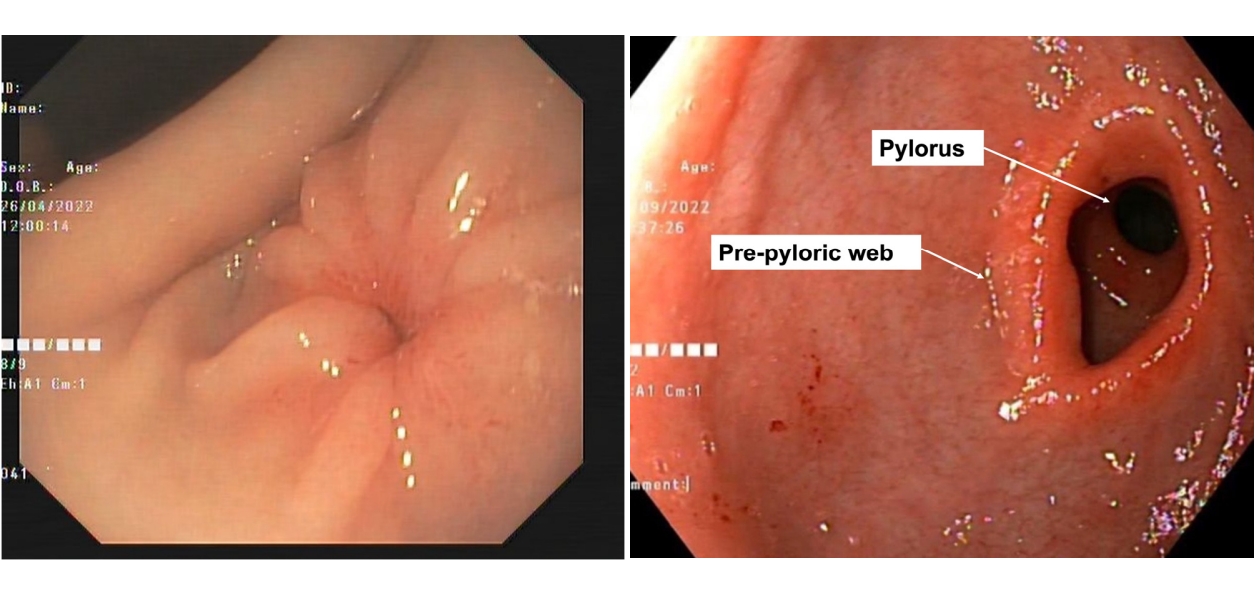- Review Articles
- Gastroenterology
- Practical concepts and strategies for early diagnosis and management of eosinophilic gastrointestinal disorders in East-Asian children
- Byung-Ho Choe
- Clin Exp Pediatr. 2025;68(3):185-198. Published online November 13, 2024
-
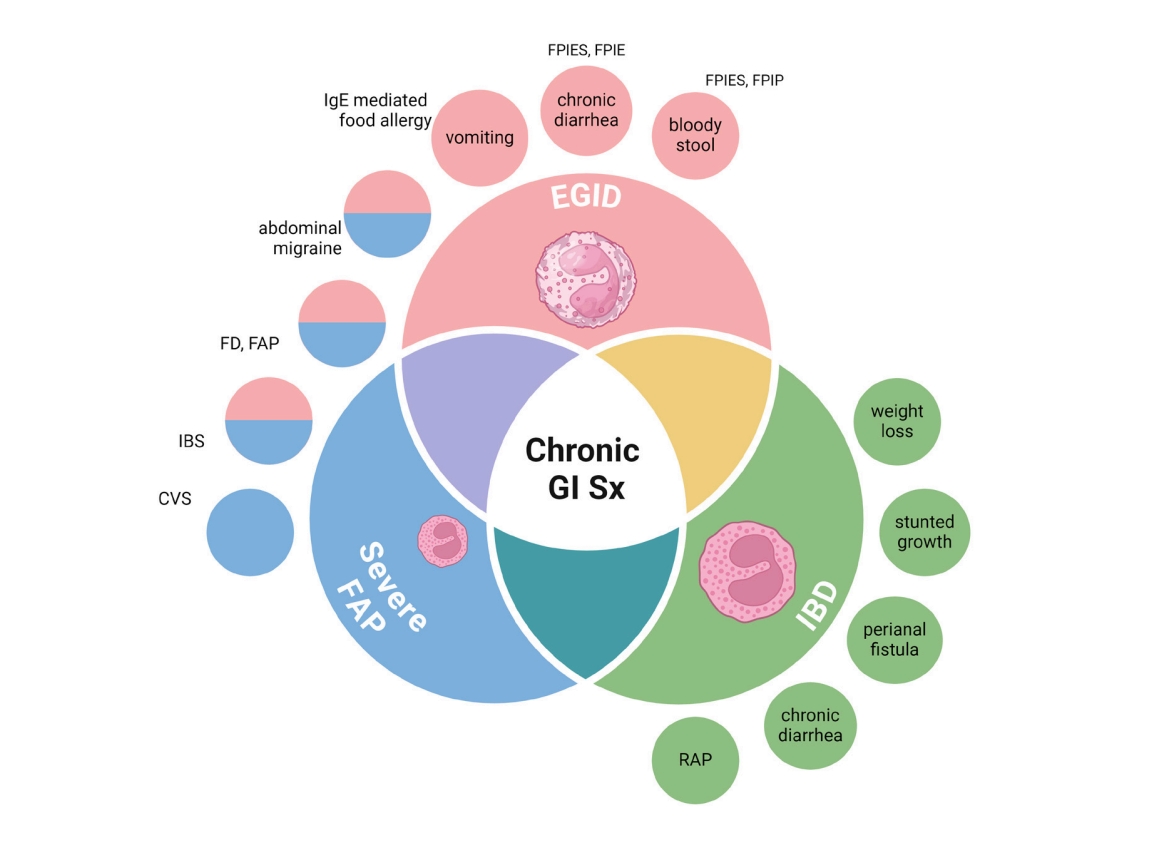
Eosinophilic gastrointestinal disorders (EGIDs) often coexist with functional gastrointestinal disorders (FGIDs) and other IgE or non-IgE mediated GI diseases. Diagnosing EGIDs requires a high index of suspicion and a comprehensive approach to differentiate them from conditions like inflammatory bowel disease. Tests such as fecal calprotectin and biopsies aid in severe cases. Maintaining a food diary helps identify triggers for long-term elimination. Awareness and education are key to effective management.
- Endocrinology
- Hidden link between endocrine-disrupting chemicals and pediatric obesity
- Min Won Shin, Shin-Hye Kim
- Clin Exp Pediatr. 2025;68(3):199-222. Published online November 28, 2024
-
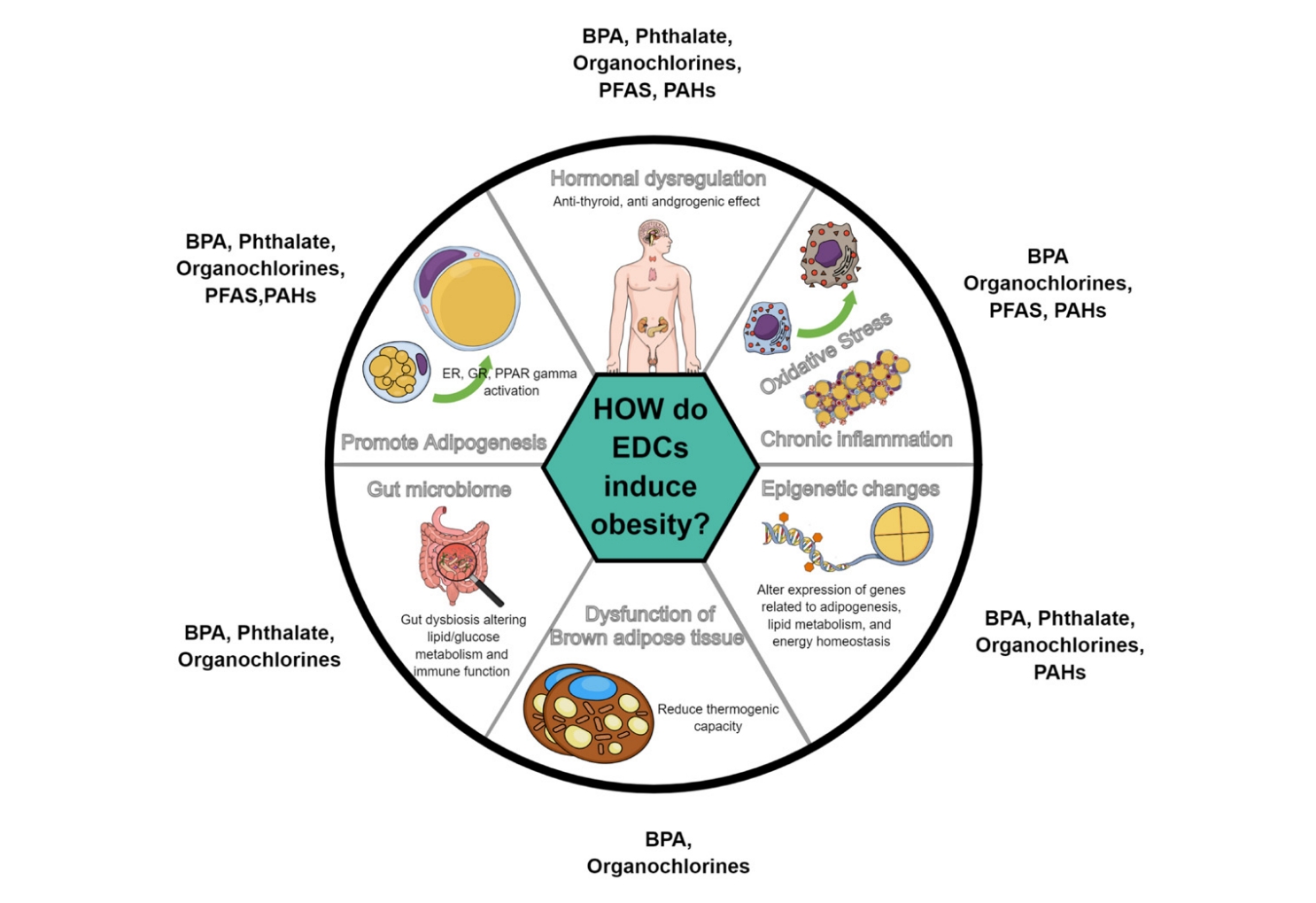
Studies indicate potential connections between exposure to endocrine-disrupting chemicals (EDCs) and childhood obesity. Variations in the impact of EDCs in epidemiological studies may result from differences in exposure concentrations and timing, measurement methods, and interactive effects of multiple EDCs. Longitudinal studies on exposure to multiple EDCs are crucial to elucidating their contribution to pediatric obesity and minimize the adverse health consequences of EDC exposure.
- Editorials
- Nutrition
- Zinc as a treatment modality for acute infectious diarrhea in children
- Ji Sook Park
- Clin Exp Pediatr. 2025;68(3):223-224. Published online October 31, 2024
-
· Prevention and management of dehydration is the major goal of treatment in acute infectious diarrhea in children.
· Zinc could be effective as an adjuvant therapy in reducing the duration of acute infectious diarrhea in malnourished children.
- Neonatology (Perinatology)
- The predetermined future: tackling South Korea’s total fertility rate crisis
- Jin Kyu Kim
- Clin Exp Pediatr. 2025;68(3):225-227. Published online November 6, 2024
-
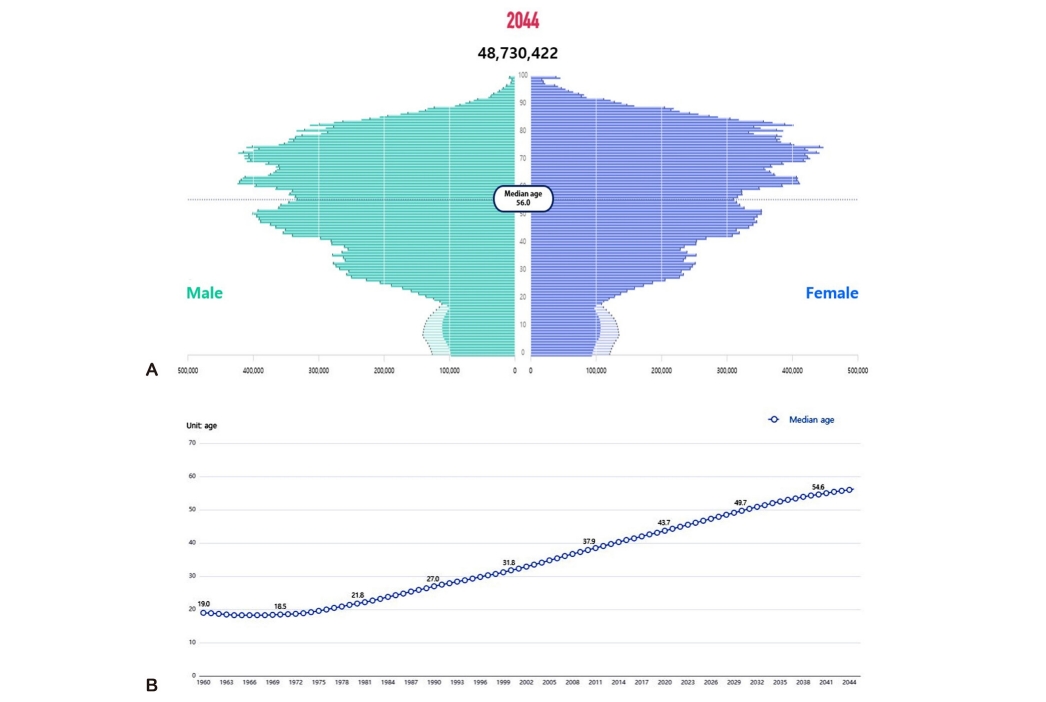
· South Korea faces a severe demographic crisis with the lowest global fertility rate. Despite significant investments, the total fertility rate continues to decline.
· It is necessary to fully mobilize national capabilities and execute comprehensive strategies that focus on both intangible and tangible values.
· Immediate and decisive action is essential to addressing these challenges effectively.
- Original Articles
- General Pediatrics
- Knowledge, attitude, and practice regarding dengue vaccine: a baseline study of community members and health providers in Indonesia
- Abdul Wahab, Ida Safitri Laksanawati, Retna Siwi Padmawati, Asal Wahyuni Erlin Mulyadi, Wahyu Triadmajani, Jarir At Thobari
- Clin Exp Pediatr. 2025;68(3):228-237. Published online November 13, 2024
-
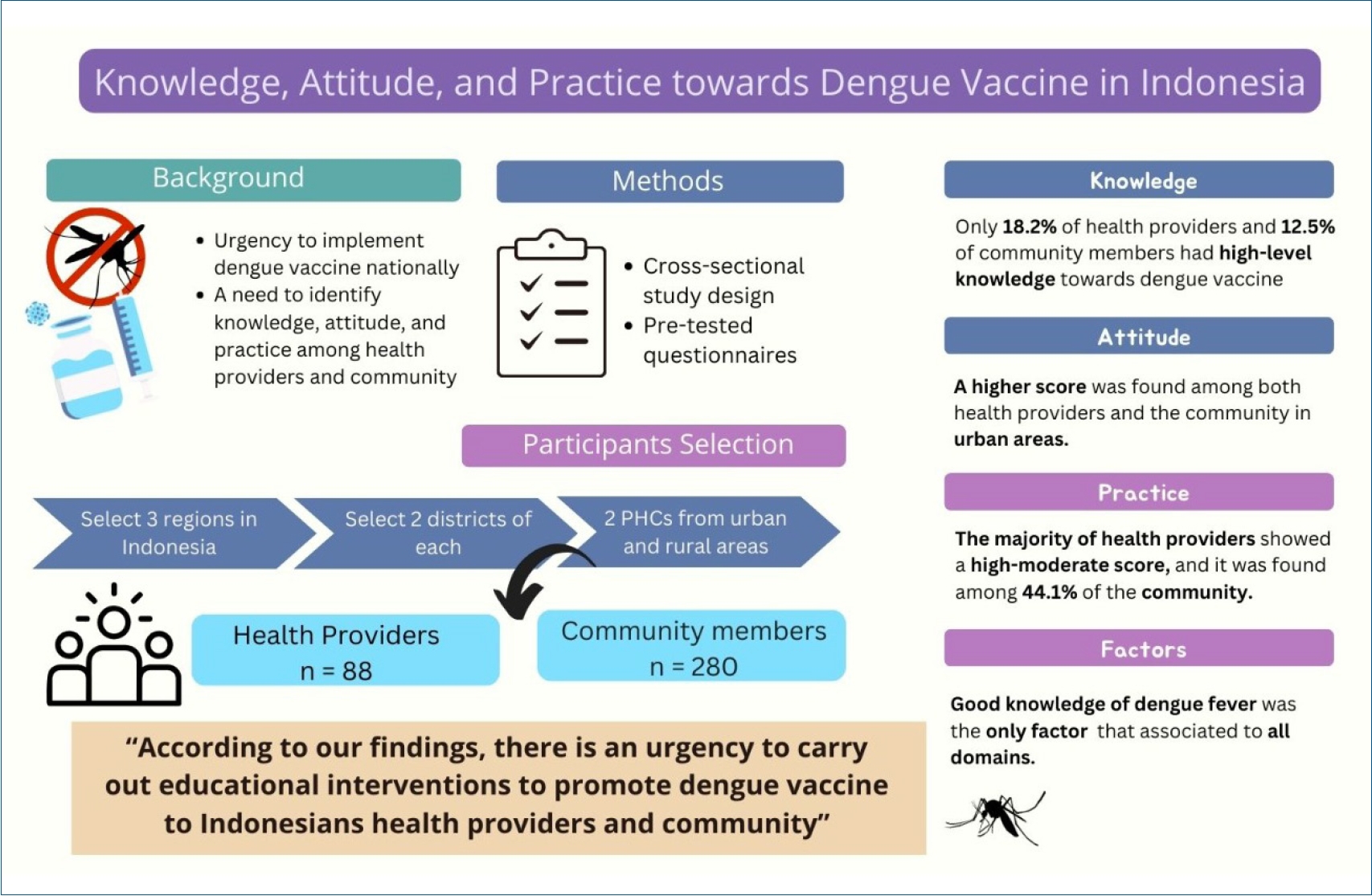
Question: Do community members and health providers show different level of knowledge, attitude, and practice towards dengue vaccine?
Finding: These 2 groups only differed in practice component, while the knowledge and attitude constituents were relatively low for both.
Meaning: There is an urgent need to deliver educational interventions to raise awareness of community members and health providers regarding dengue vaccination.
- Endocrinology
- Prednisolone impairs trabecular bone score changes in adolescents with 21-hydroxylase deficiency
- Pattara Wiromrat, Yutapong Raruenrom, Phanpaphorn Namphaisan, Nantaporn Wongsurawat, Ouyporn Panamonta, Chatlert Pongchaiyakul
- Clin Exp Pediatr. 2025;68(3):238-246. Published online November 13, 2024
-
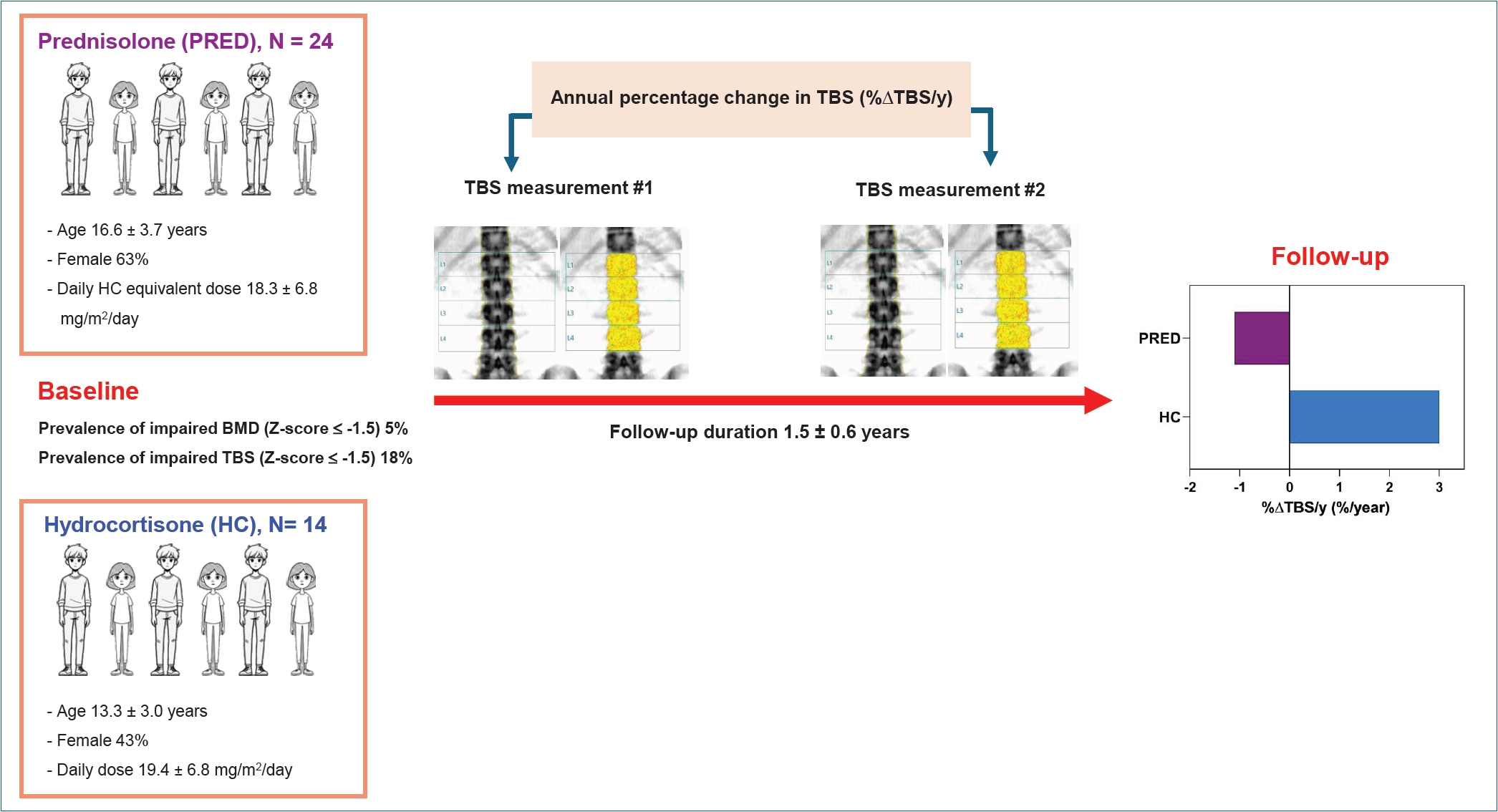
Question: What is the prevalence of an impaired trabecular bone score (TBS), a measure of bone microarchitecture, in adolescents with 21-hydroxylase deficiency (21OHD)? Do prednisolone and hydrocortisone affect TBS differently in this patient population?
Finding: Impaired TBS was observed in 18% of participants. Prednisolone use negatively impacted TBS change.
Meaning: Impaired TBS is prevalent among adolescents with 21OHD. Prednisolone impairs trabecular bone microarchitecture development.
- Gastroenterology
- Outcome of pediatric inflammatory bowel disease in Asian children: a multinational 1-year follow-up study
- Pornthep Tanpowpong, Suporn Treepongkaruna, James Guoxian Huang, Kee Seang Chew, Karen Sophia Calixto Mercado, Almida Reodica, Shaman Rajindrajith, Wathsala Hathagoda, Yoko Kin Yoke Wong, Way Seah Lee, Marion Margaret Aw
- Clin Exp Pediatr. 2025;68(3):247-256. Published online November 13, 2024
-

Question: Short-term (1-year) follow-up data in pediatric patients with inflammatory bowel disease (IBD), especially in Southeast Asian countries, are limited.
Finding/Meaning: Abdominal pain and pallor rates remained high at 1 year after IBD diagnosis. Three independent factors of 1-year clinical remission for Crohn disease were oral prednisolone, antibiotic, and immunomodulator use at 1-year follow-up. A history of weight loss at diagnosis was the only independent risk factor of IBD flare.
- Genetics and Metabolism
- Long-term follow-up of neurocognitive function in patients with citrin deficiency and cholestasis
- Meng-Ju Melody Tsai, Jung-Chi Chang, Heng-Yu Lu, Susan Shur-Fen Gau, Yin-Hsiu Chien, Wuh-Liang Hwu, Yen-Hsuan Ni, Huey-Ling Chen, Ni-Chung Lee
- Clin Exp Pediatr. 2025;68(3):257-265. Published online November 28, 2024
-
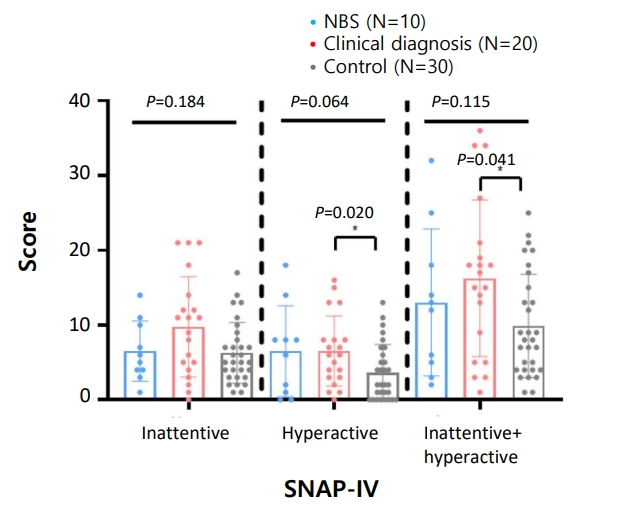
Question: Do transient metabolic disturbances in early childhood due to citrin deficiency have lasting effects on neurocognitive function?
Finding: Children with citrin deficiency have a higher prevalence of ADHD compared to the general population, with elevated ammonia levels in infancy associated with increased hyperactivity-impulsivity risk.
Meaning: Metabolic disturbances in early childhood due to citrin deficiency may contribute to long-term neurocognitive impacts, particularly ADHD, while IQ and life outcomes generally remain normal.
- Clinical Note
- Gastroenterology
- Congenital antral web: rare cause of gastric outlet obstruction successfully managed with endoscopic balloon dilatation
- Upasana Ghosh, Ujjal Poddar, Srinivas Srinidhi Vadlapudi, Moinak Sen Sarma, Anshu Srivastava
- Clin Exp Pediatr. 2025;68(3):266-268. Published online January 13, 2025
-
